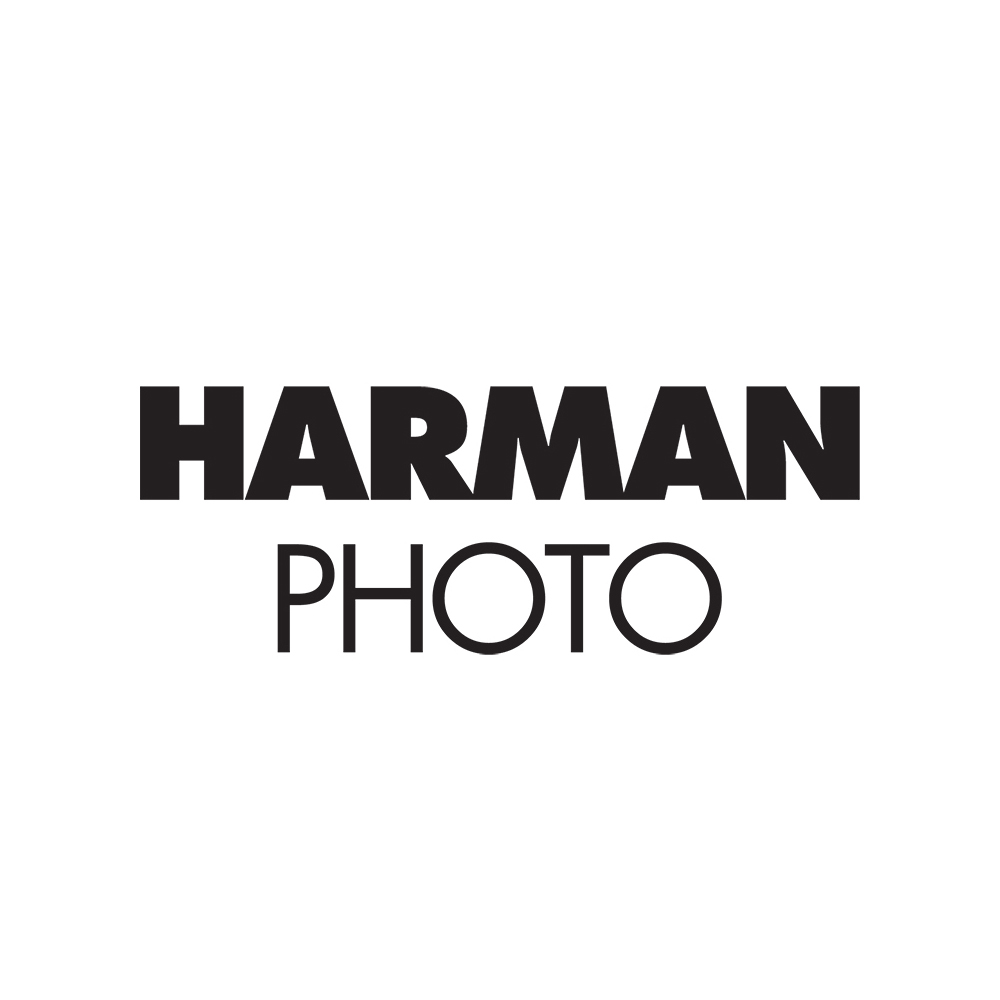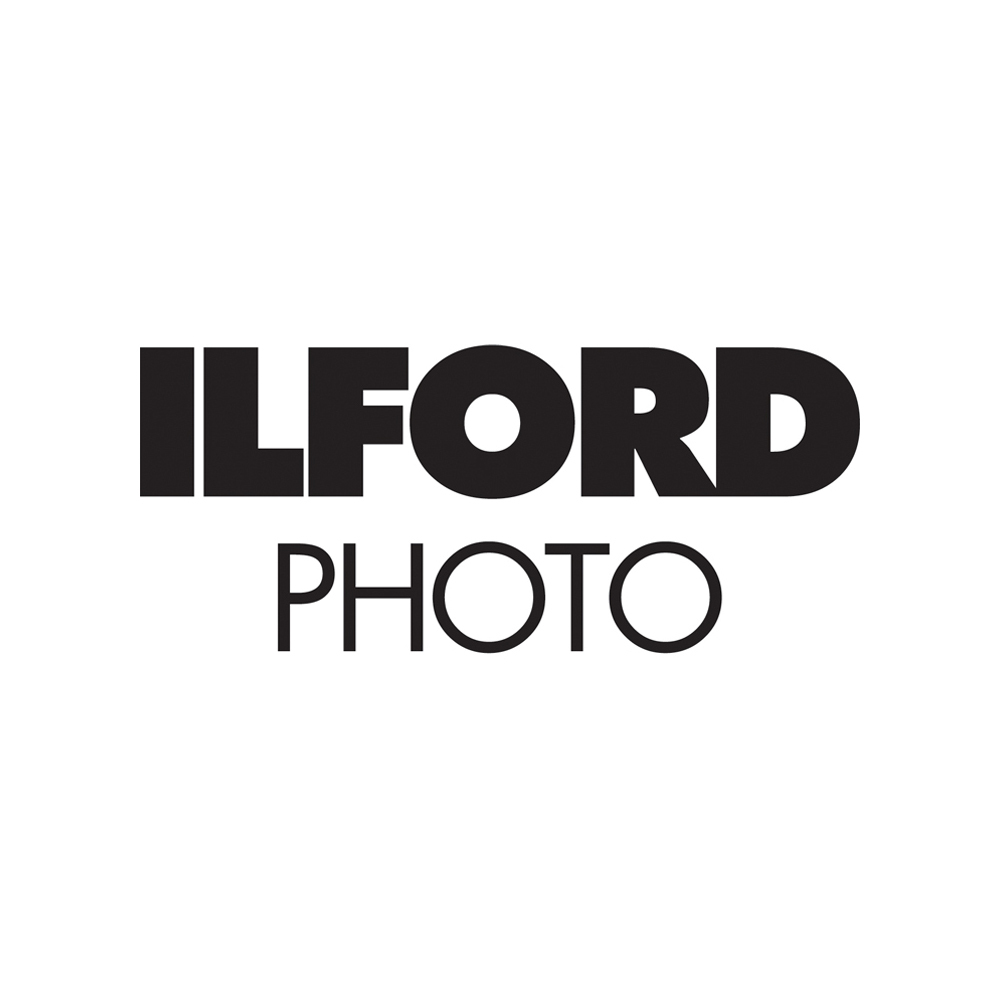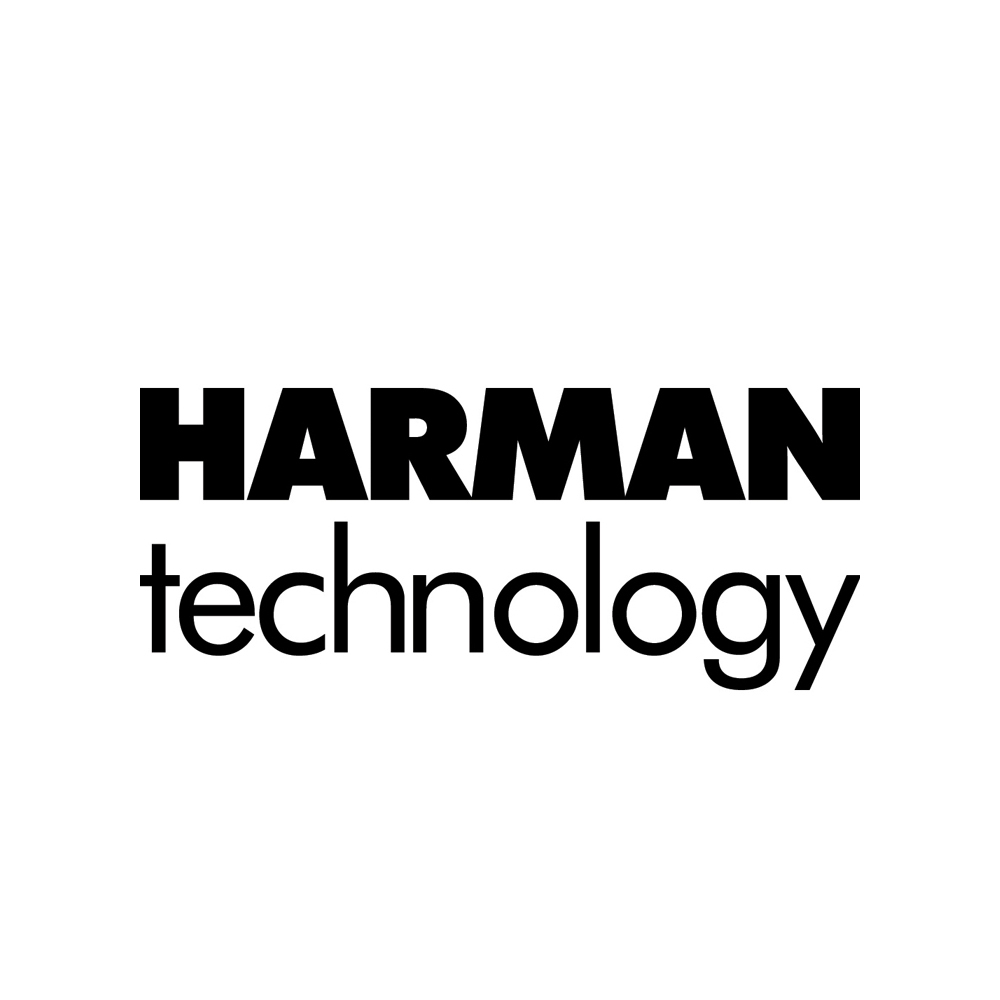Karpfenland with DELTA 3200 Posted On 1st February 2022 To Magazine & Film specific

Hi, my name is Daniel. I am a family father, creative director, and amateur photographer, so you might say I make my living by telling stories and I feel fine when things get emotional ;-). I am based in Heroldsbach, Germany. That’s a small village which lies on the edge of the so-called Karpfenland, a natural landscape transformed by man for pond farming.
Until 2013, this cultural landscape was utterly unknown to me. Today it has become my home. Yet one question nags on me:
“Who shapes whom more: man the landscape, or the landscape man?”
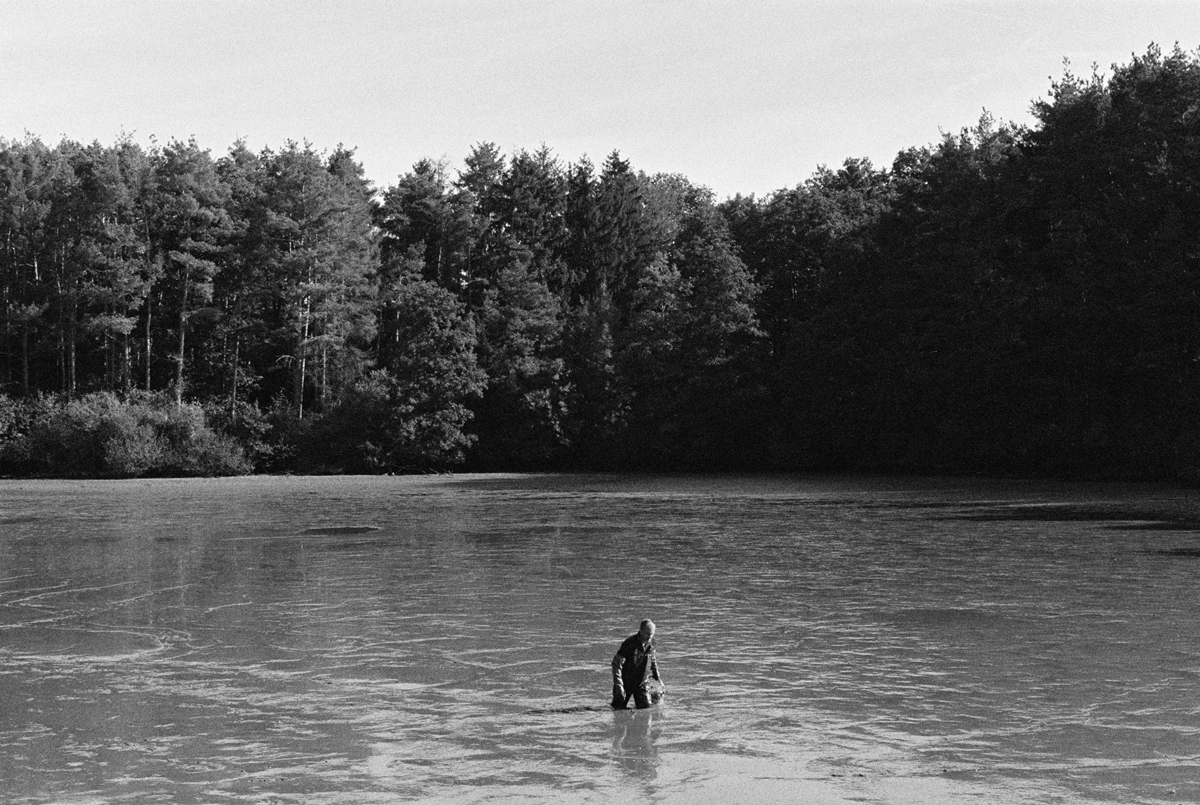
ILFORD DELTA 3200 - Evoking answers
Yes, I love black and white photography. And yes, ample grain also gives me goosebumps - and so YES: I don't like tripods. Seriously, they are not my cup of tea. And for all these reasons, I started shooting Delta about two and a half years ago. But that was only the beginning.
I still use Delta today because it helped me answer three questions that were holding me back from getting to the heart of things: Is Karpfenland an analog or a digital project? Am I doing Fine Art or Documentary photography? And is this about gear or photography?
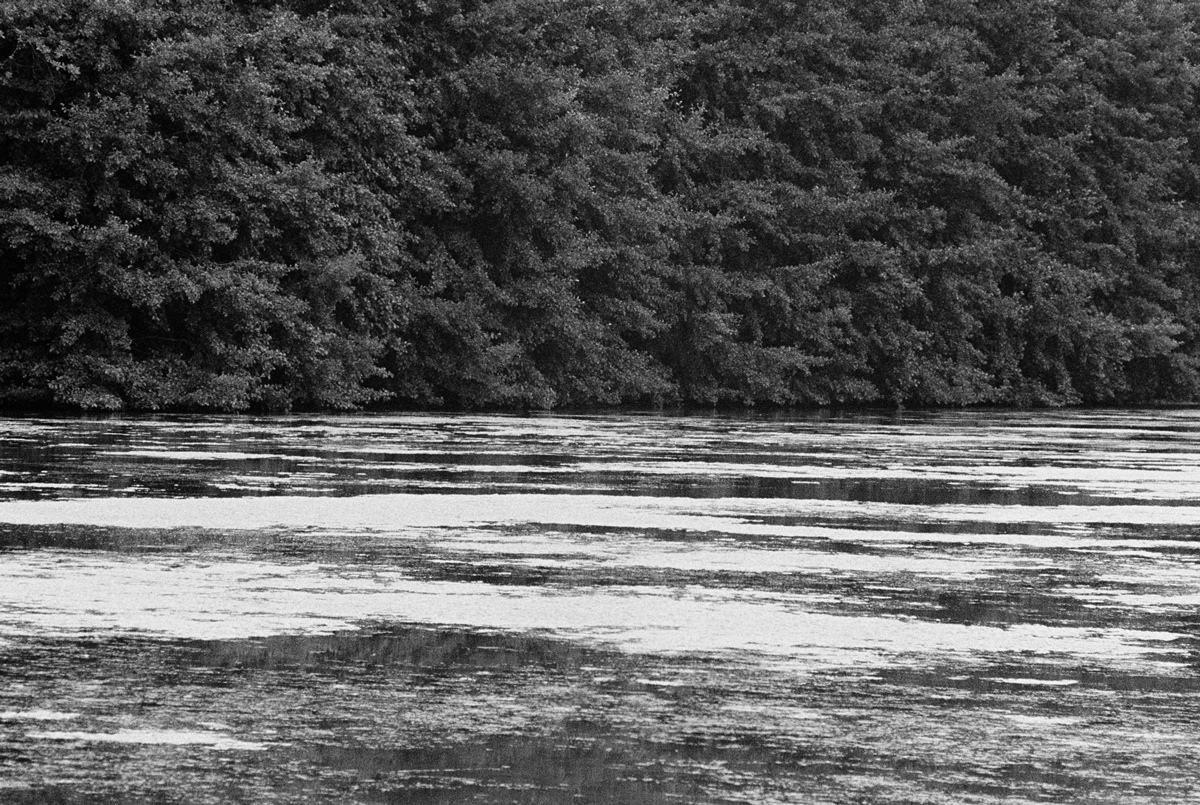
At least that is what I used to think. But I'll come to that at the very end 😉
Analog or Digital?
The countless, mostly rectangular ponds of Karpfenland are used for raising fish. They are usually no deeper than two meters and were all planned and created by humans. So, their geometric shapes are not only an expression of a basic practicality, but also an imprint of the essence of the people here. This spirit of things, I want to capture.
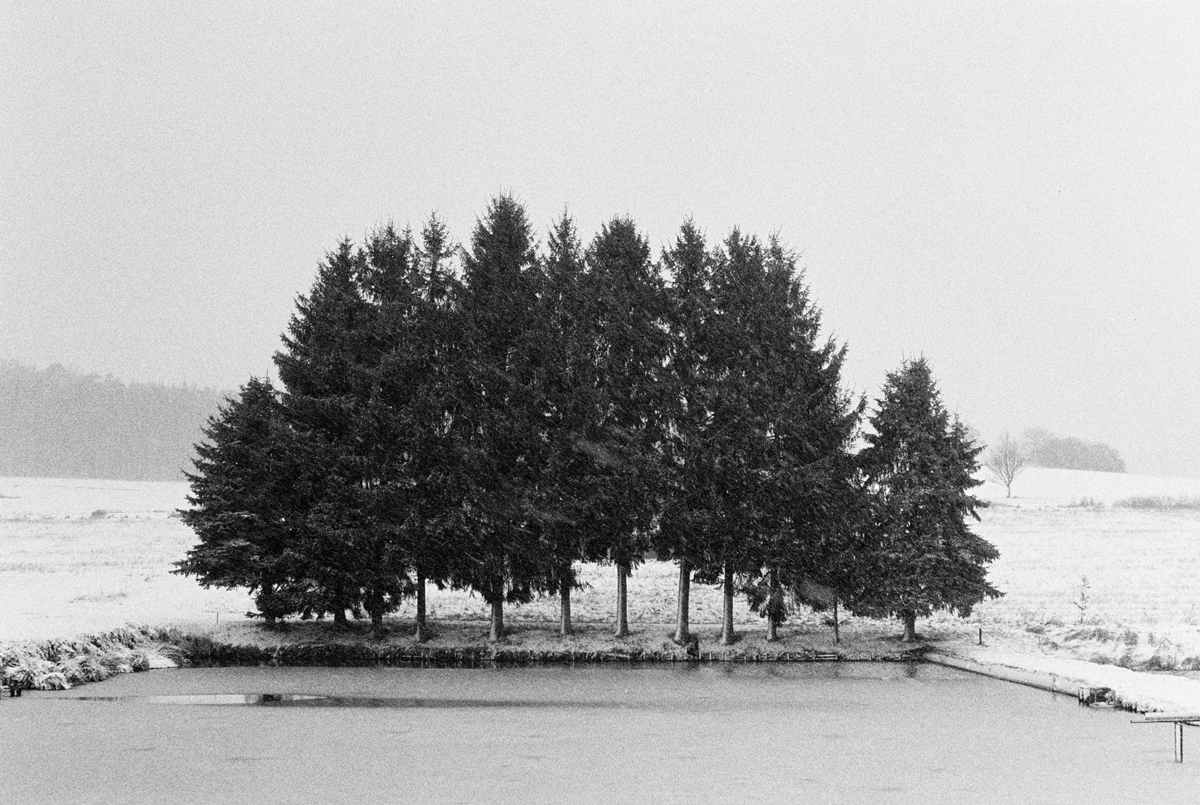
The straight shorelines and horizons form static elements against which the myriad textures seem even more exciting. All those finely ribbed water surfaces, the wet soil and the foliage are almost like a skin. Monotonous, yet infinitely unique.
Deltas’ grain does for me with these textures exactly what grain does with human skin for so many people photographers. It smoothes and harmonizes the surface without taking the life out of it. And it does it in a "magical" way that I cannot reproduce digitally.
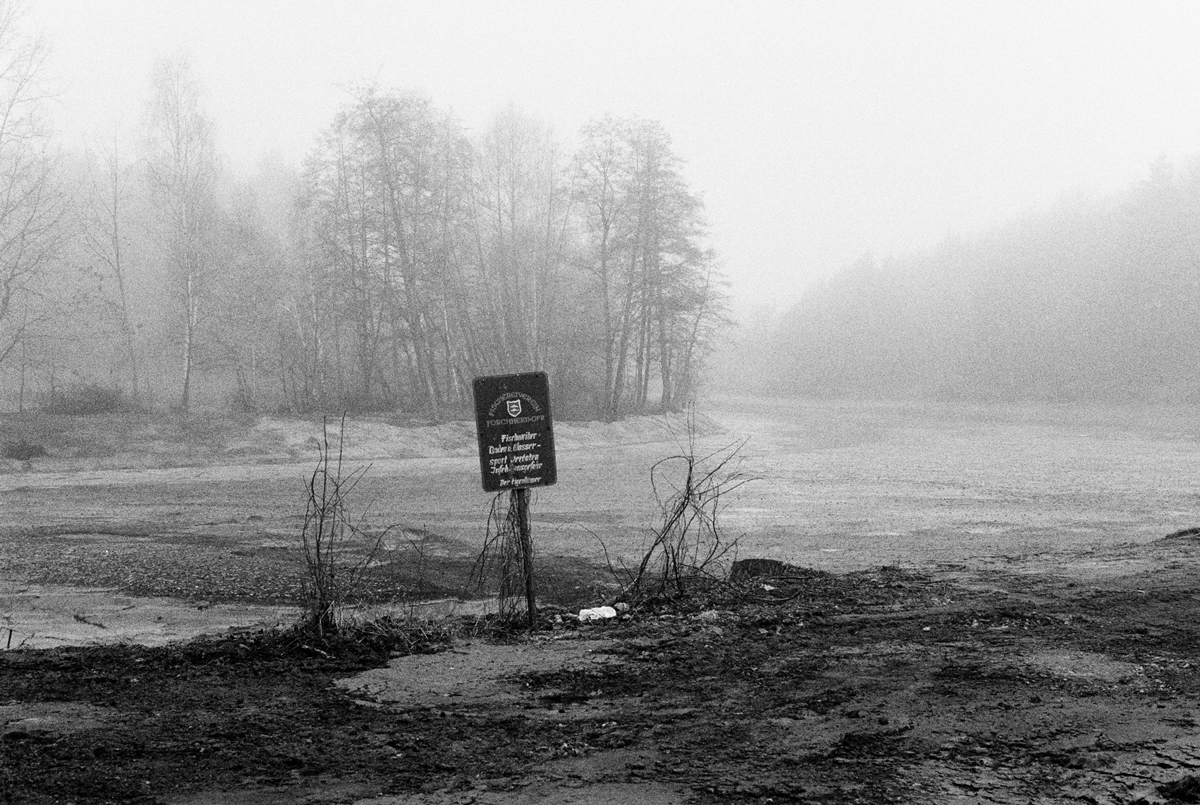
Which, by the way, doesn't mean I don't do digital post-processing. Quite the opposite. I have my negatives developed and scanned by a specialist lab - they can simply do it in a quality I can' t manage - and then I spend a bit of time tweaking the highlights and shadows. This is where Delta comes in handy. For some it is too "flat", for me it is the perfect “hybrid" RAW file.
Fine Art or Documentary?
It all started with landscapes. Trees, ponds, paths. Fog moods. And then - to give these images more meaning - I said: it’s all Fine Art Landscape. That sounded great, others knew what to expect, and it helped me make decisions. "Does this fit into the project, or not? Will it be consistent?" A category.
But over time, it dawned on me that this was the wrong way to go. After all, I didn’t want to fill a container, I want to draw a portrait of this cultural landscape - and thus answer the question:
“Who shapes whom more: man the landscape, or the landscape man?”
So, it was a matter of getting to the people, right? But how? Well, in a way that was familiar to me from my previous work as a TV journalist and filmmaker. Authentic reportages have always touched me more than even the most perfect staging.
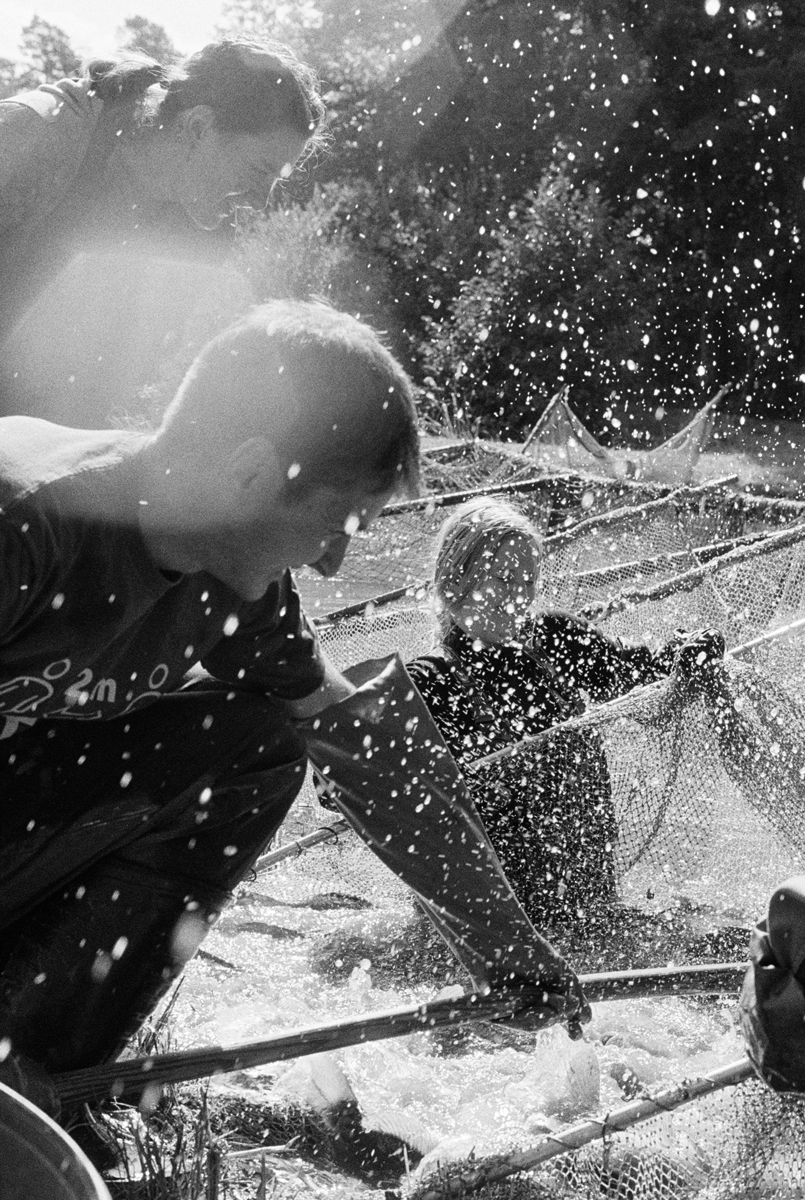
And suddenly the project took off. Overcoming my own shyness and approaching people brought me closer to the heart of my project. And with each contact, I learned more about pond farming and began to understand why people put themselves through this drudgery. Now I know one thing for sure: for financial reasons, almost no one does it.
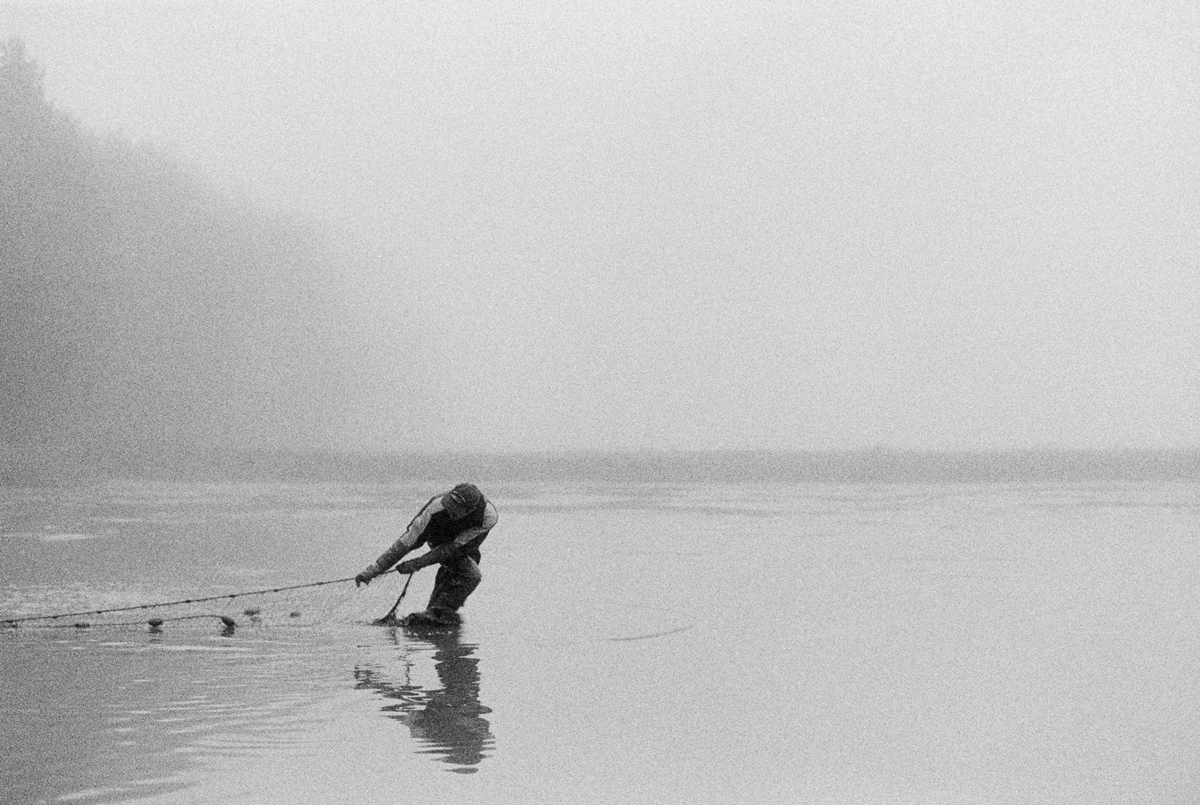
But: Does it fit together? The landscapes and the documentary images? To me, yes. The subject is the same, the goal is the same, and the appeal is also the same. Thanks to Delta the images complement each other harmoniously, and that's important to me personally.
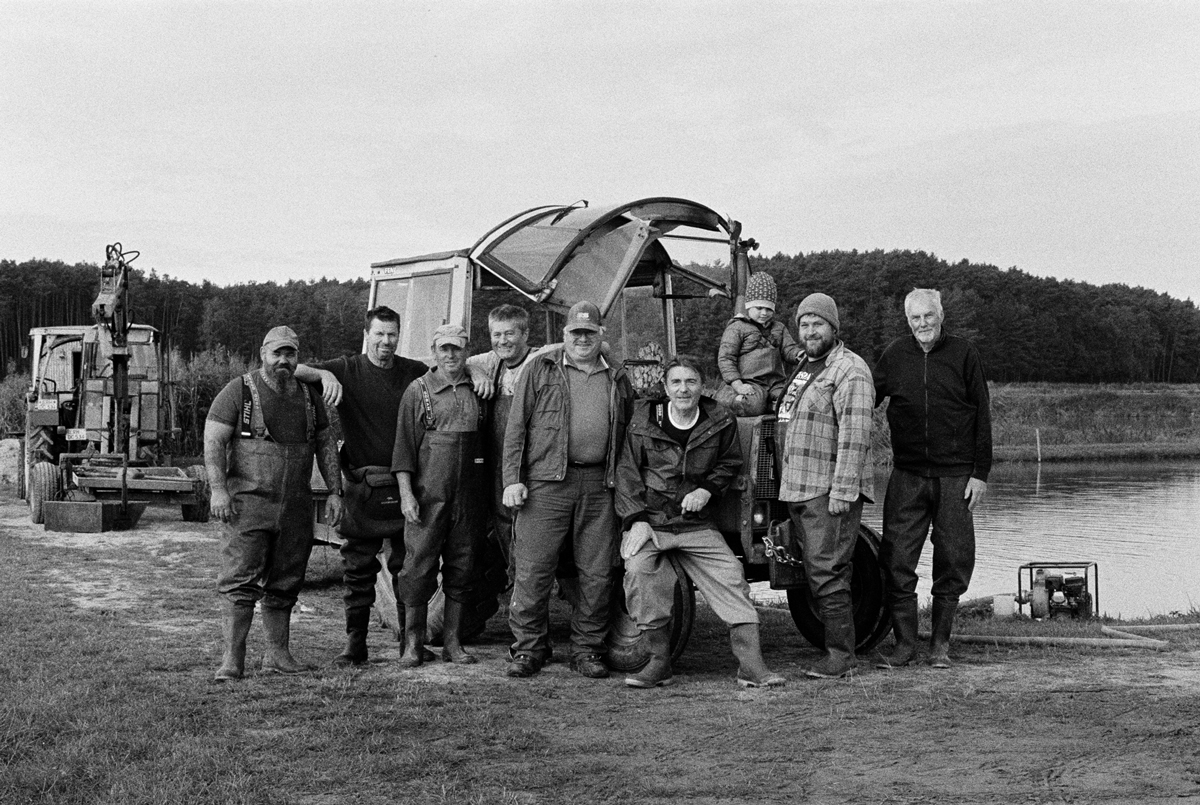
Gear geek or Photographer?
The photographer Tim Walker once said: “Only photograph what you love.” And I totally get that. Only if you connect emotionally, can you create emotive imagery. But for me the same is also true for my tools. I need to love them, to make use of them. And hey, I am an amateur! That's my fortune. I can be inefficient. That’s awesome 🙂
You know I like disappearing into that ominous Gear-Acquisition-Syndrome-Bubble on YouTube and Instagram. But equally, I like seeing the morning mist through the viewfinder of my camera and being present. I'm not an artist and I'm not a craftsman, I like to think of myself as an artist craftsman. A hybrid. And Delta is one of my favorite tools. Because it suits my hybrid workflow, and it just feels good in my hand. Like one of those good old, reliable landing nets that you can be sure will capture well.
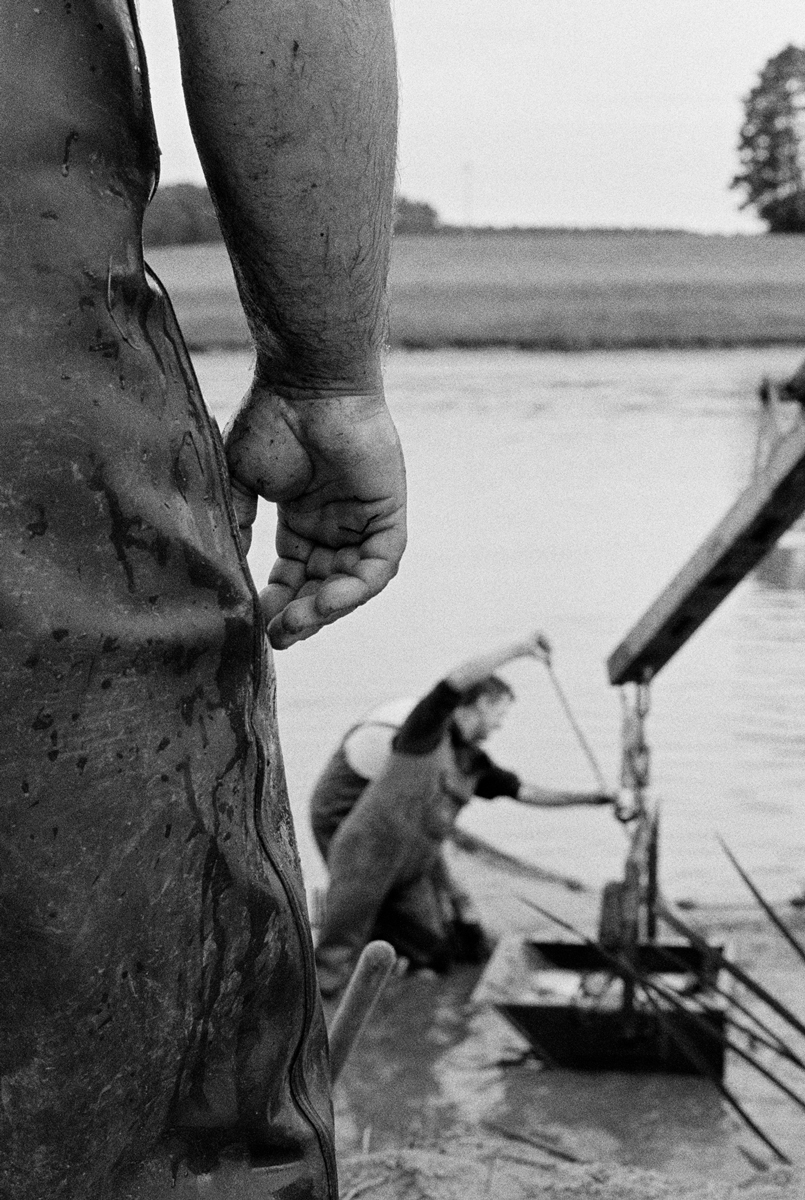
And the answer is…
“Who shapes whom more: man the landscape, or the landscape man?”
I haven't found the answer yet. Maybe it's a chicken-and-egg question. And maybe I don't need to find the answer at all. Maybe it's all about the questions rather than the answers? About giving viewers a chance to immerse themselves in Karpfenland?
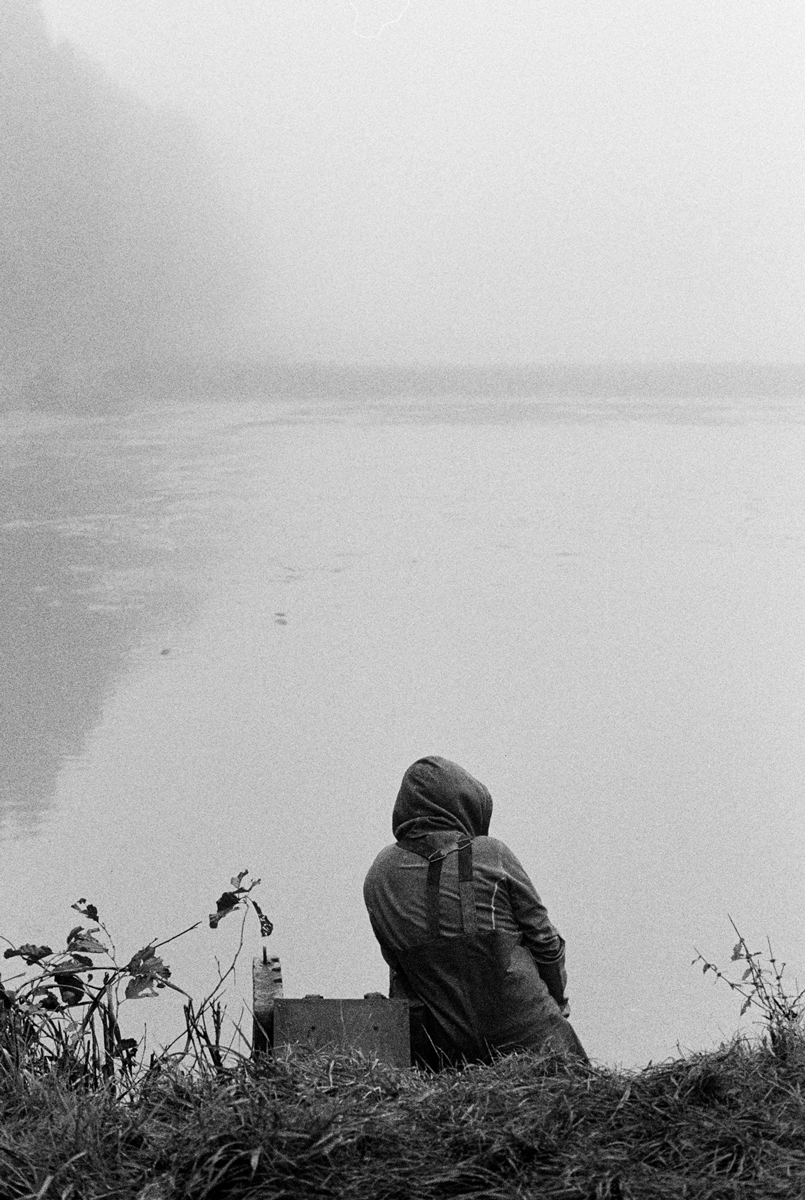
Hmm, I guess I’ll take this thought with me into the design of my book. What do you think?
Images © Daniel Boklage
About The Author

Daniel Boklage
Hi, my name is Daniel. I am a family father, creative director, and amateur photographer, so you might say I make my living by telling stories and I feel fine when things get emotional ;-). I am based in Heroldsbach, Germany. That’s a small village which lies on the edge of the so-called Karpfenland, a natural landscape transformed by man for pond farming.
IG @karpfenland
www karpfenland.com

